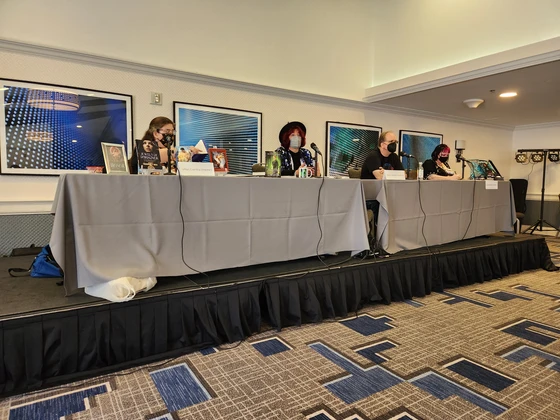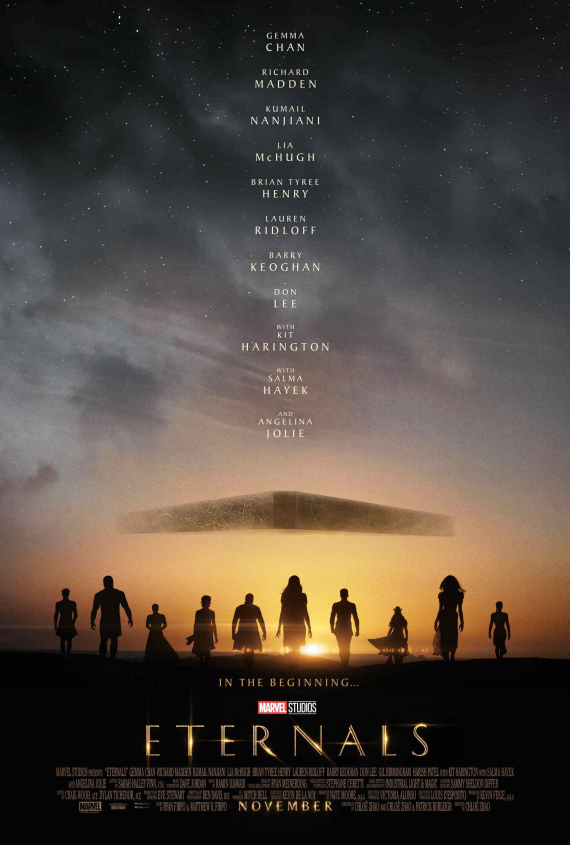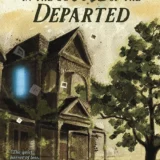The Galaxy Award is one of the two top prizes for SF in mainland China. I will try to introduce some of the works that have won this award in the Blog.
The first one here is one of the three winners of the best short story in year 2014——In Nightfall Awakens the Dreamer, by Jiang Bo.

The story starts with a setting that reminds readers of the movie Matrix, with machines taking care of people in deep dreams. However, unlike in the movie, the machines in this story are strictly following the Three Laws for Robotics, which put them in a humbled position to serve mankind. In fact, the protagonist has enjoyed the dreams facilitated by the machines for half a century. But recently, there seem to be some anomalies because he wakes up from the dream very often. Something is calling to him. Something keeps dragging him out of the dream world, and he decides to look for it.
From there on, the narrative winds down to an expedition of the protagonist. He leaves the coffin-like sleeping box and gets to have a look of the entire city. But that is not the end. He has to find the cause of the anomalies. A robot dog is assigned the task of ensuring the safety of the protagonist during his time in the reality world. So, the pair starts off and everything seems in control. Then, while his journey goes on, he finds some appalling truth. He has to find a solution to the issue as well as rediscover his own mysterious past.
The author takes on a smooth and calm voice in the beginning for the descriptions of the peaceful life the protagonist enjoys in the dream world. As his journey goes on, when he faces the terrors that he has never expected, the proses become more vibrant. Then, at the end of the story, as bitterness takes over the protagonist, readers are immersed in the same emotions as he experiences. With vivid language, the author has created a believable future world where humans have submitted themselves to the dream world while machines taking care of every aspects of human life. Also, his touching story-telling makes the tale more compelling and voices a profound worry over how computers might change the way of living for humans.
Jiang Bo, the author of this story, is one of the Chinese SF writers who distinguished themselves in recent years. In year 2003, his debut story, The Last Game, was published and since then, his works have appeared frequently in Chinese SF magazines and are generally well received. One of his most successful stories, Dance of Shiva, was translate into Japanese and published in a Japanese magazine. His first novel, The Dying Sun, was published in 2012 and won a silver prize of Chinese Nebular Award in the same year. It is the first installment of his Heart of Galaxy series. The second book in the series, The Dark Abyss, won another silver prize for him in the ceremony of Chinese Nebular Award in 2014.
*****
The second story I would like to introduce is a novelette——The City of Rising Winds, by Zhang Ran. This story won the Galaxy Award in 2014.

The protagonist was a middle-class office worker who led a peaceful and comfortable life. One day, he received a hand-written letter, sent from a decaying city. There was no signature at the end of the letter but he knew perfectly who had sent it. The sender of the letter asked him to come to meet her in 72 hours. Fifty hours later, he was on the way.
When he arrived in the city where he had been born, what he found were deserted streets and patrolling robots. This was a city once prospered on heavy industries. But when the robots had replaced the humans on the production lines, there had been a life-costing riot and the city had been in decline ever since. The protagonist and the woman he was going to meet had some shared history during the events that had led to the riot. Now he was coming back to redeem a dream that had been lost for twenty years.
The City of Rising Winds is a story full of fascinating details. With the discarded Volkswagen Beetle, the ill-maintained streets, the grey smokes hovering over the deserted city, and many more bleak scenes, the author filled the story with an air of dystopia setting. Rock music, which is actually rooted in the urban working class, played an important role in the story as well. During the struggling of the industrial workers, it somehow channeled rationale into the crowd. When the music was forced to stop, everything went awry. There were also explorations of emotions that would provoke a touch of nostalgia from the readers. The author weaves back and forth in timeline, spending a lot of efforts on the twelve-year-old young adolescent who had his mind filled with robots, rock music and girls. As the plot unravels, readers will learn that all these intricate elements so carefully put together by the author are designed to serve the final climax. After all, we are what we experienced, or rather, we are what we remember.
Zhang Ran won his first Galaxy Award in 2013 with his first story, Ether. Now, The City of Rising Winds gives him another trophy in 2014. Moreover, his historical SF, Snowdrifts in Jinyang, won silver prize of Chinese Nebular Award in 2014. It will not be a surprise if we see him collect more prizes in future.
*****
Science Fiction World magazine, the organizer of the Galaxy Award, has plans to translate the two stories mentioned above into English, together with another two that won the Galaxy Award in 2014. But now it is too early to tell any details. Hopefully, I will come back to this topic later.
[Thanks to Regina Kanyu Wang for pointing out some of my mistakes in regard to the facts of Chinese SF.]
Shaoyan Hu is a part-time translator for speculative fictions. He has worked together with other translators to render A Song of Ice and Fire series into Chinese language. His other translation works in Chinese language include Marooned in Realtime by Vernor Vinge, The Scar by China Miéville, and The City & the City by China Miéville. There are also a number of short stories, novelettes and novellas translated by Shaoyan that appeared in various SF&F magazines in China.










Recent Comments